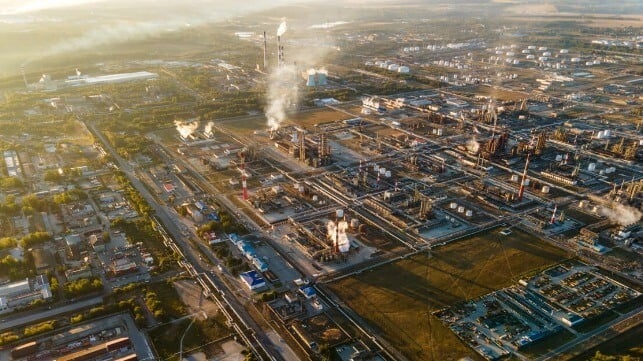Video: Ukraine Hits Another Russian Refinery in Long-Distance Strike

Despite disapproval from the White House, Ukraine continues its campaign of attacks on refineries deep within the Russian heartland. It is a rare area of success for Ukrainian forces, and it is having a material impact on the structure of Russian oil exports.
Late Tuesday night to Wednesday morning, a fire broke out at a Rosneft-controlled refinery in the town of Ryazan, about 100 miles southeast of Moscow and 300 miles from the Ukrainian border. The region's governor, Pavel Malkov, confirmed that an attack had occurred but did not provide further detail about location or damage.
Open source intelligence sources suggest that the refinery was hit by multiple drones. A Ukrainian official confirmed the strike to Reuters on condition of anonymity, but it was not possible to immediately confirm the extent of the damage.
As of early March, Ukrainian drone attacks have reduced Russian refining capacity by an estimated 14 percent nationwide. Gasoline exports have been temporarily banned to prevent shortages in the domestic market, and Russian officials have acknowledged that the refinery outages are tilting the balance of petroleum exports away from refined products, which are now less plentiful. Instead, Russia is focused more on exporting unrefined crude oil - effectively increasing the crude supply available for purchase on the global market.

that matters most
Get the latest maritime news delivered to your inbox daily.
Defense analysts note that in picking oil refineries, Ukraine has found a particularly vulnerable target for long-distance drone attacks. Refineries are expensive, immobile, readily catch on fire after a small drone explosion, and are hard to defend because of their sprawling size. The attacks also have an outsize propaganda effect because of the dramatic fires they produce.
As a measure of the difficulty of defending this vital energy infrastructure from a persistent drone threat, Monday's attack was the second time that the Ryazan plant has been hit. Two of its distillation units were struck on March 13, and it had just come back up to full capacity.
